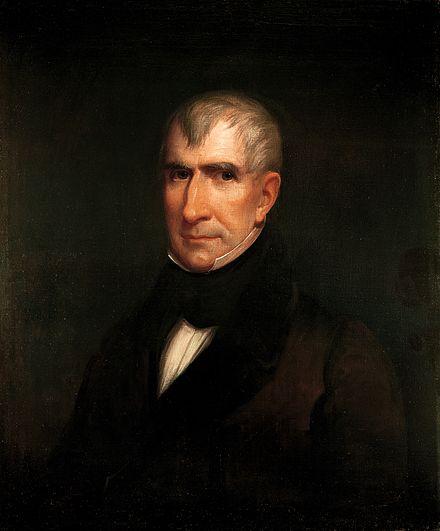
Credit: Wikimedia Commons
All presidents are to be pitied in one way or another, but perhaps the most tragic of them all is our utterly forgettable ninth president, William Henry Harrison. He ascended to the presidency in a relatively undiscussed era between the (dare-we-say) exciting early years of the nation and the turmoil of the Civil War. And—more importantly—he served for only one month before dying in 1841. All that fundraising, campaigning, slogan-ing (ever heard of "Tippecanoe and Tyler Too"?), debating, mud-throwing and mud-receiving, for one lousy month? What an unlucky soul.
It’s long been believed that poor Harrison died from pneumonia resulting from his exceedingly long Inaugural Address delivered in freezing, rainy weather. After said fundraising, campaigning, baby-kissing, etc. Harrison wanted to relish in his victory—and wanted to look dapper while doing it!—thus forgoing a coat, hat, or gloves.
But an author of medical diagnoses, Philip Mackowiak, and colleague Jane McHugh have revealed a new theory, and it isn’t pretty.
Harrison’s death was due to sewage rather than pride.
A workable sewer system was sadly not among the top priorities for our nation’s founders. Until 1850, sewage flowed freely in some public areas, including grounds just outside the White House, where the waste ended in a run-of-the-mill, stagnated marsh of filth. Oh! And the White House water supply was also located close to a sewage depository—you can imagine the contamination possibilities.
According to the authors, close examination of Harrison’s symptoms and course of the disease make it sound more like bacteria-causing Typhoid fever than pneumonia. Harrison had a history of indigestion, which can leave a person more susceptible to pathogens, and Harrison’s attending physician even wrote, “The disease was not viewed as a case of pure pneumonia.”
And William Henry Harrison may not have been the only president to pay the ultimate price for the capital’s poor sanitation, oh no. Two other pre-sewer presidents, James Polk and Zachary Taylor, also fell ill to severe intestinal diseases during their tenures in the White House. Taylor died; Polk survived, only to be finished off merely three months later, probably from cholera—another sanitation-based disease he probably contracted in similarly fetid New Orleans.
So it appears that poor sanitation has been the silent killer of Presidents—just behind assassination (there have been four fatal shootings) in deadliness. It may have taken more than seven decades from the founding of the country, but we can be ever glad that our forebears finally resolved to funnel excrement away from daily activities. The security of the executive branch may have depended on it!
